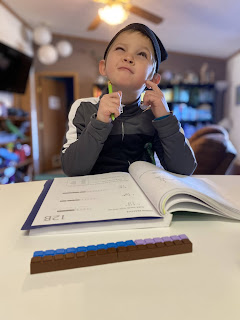Intense Learning and Active Academic Involvement
I was recently reading about a study done on correspondence public school students versus traditional public school students and the conclusion of the study found the at-home correspondence option disadvantageous for economically stable students, students without disabilities, and Caucasian students, though it showed positive trends for minorities, economically disadvantaged, students with disabilities, and households in other ways disadvantaged. Ultimately, the study labeled “homeschooling” (though the correspondence courses were regulated and closely overseen by education officials and professionals; NOT independent homeschooling, as such) in need of closer regulations because of the “negative impact” on some students (which ignored the positive impact on the others?)
Remember, this is only looking at the public school-at-home (which many have been forced to accept, during the ‘rona!) not at independently run homeschools (which historically result in significantly higher test results). What is the difference here? You can check out the full test and an analysis from HSLDA here, but the part that stands out to me—as I constantly strive to improve our homeschool—is the value of “intense learning” and the relationship between AAE and academic gains.
AAE is “active academic engagement,” or the amount of time during a lesson where the student is doing things like reading (aloud or to himself), writing or speaking about the lesson, solving problems about the lesson, or typing/note-taking. In other words, the setting for education (in a purely academic sense) is far less important than the intensity of the education. And in independent homeschooling, we can tailor a lesson to have AAE for our kids without the regulated and mass-produced design necessary for the government educational system. And all y’all know how I feel about the value of a fully-customizable education—I love it!
It’s important to recognize, in cases like this, that analysis of “homeschooling” cannot be taken at face value. I do think there is valuable takeaways for independent homeschoolers from this study, but I do not think you can conclude that “homeschooling” is disadvantages for a certain demographic just because a correspondence version of public school proved less optimal—especially as study after study has validated the experience of private homeschools.



Comments
Post a Comment